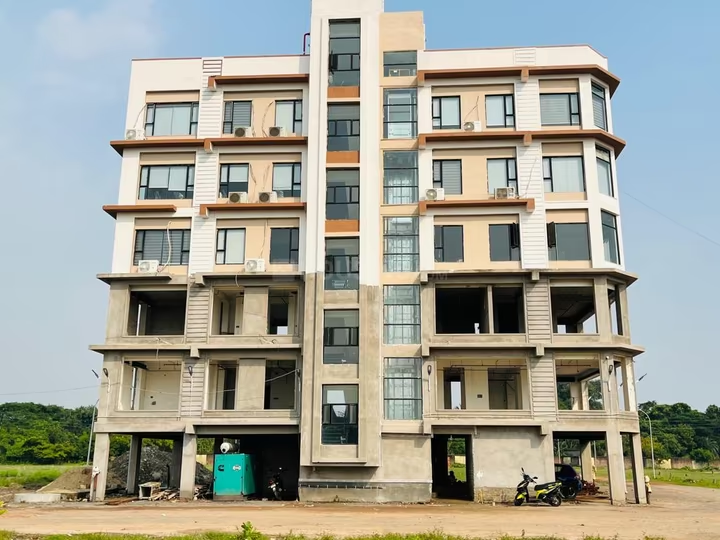Maharashtra law now empowers Registrars to legally recover unpaid society dues, avoiding illegal or delayed actions.
Cooperative housing societies in Maharashtra often face a recurring issue: some residents don’t pay their dues on time or at all. These fees cover basics like water, electricity, elevator services, staff salaries, and maintenance. They’re crucial to keep the society running . When a few members skip payments, others have to pick up the slack. This leads to tension unfair responsibility, and sometimes even cuts to key services.
Many managing committees don’t want to confront those who don’t pay. Some try illegal tactics like cutting off water or power. These moves break the law and make things worse. Recognizing the need for a clear, legal, and organized fix, the government updated Section 101 of the Maharashtra Cooperative Societies Act 1960. This change lets the Registrar of Cooperative Societies handle the debt collection process. It offers a faster and more open option than going through the courts.
Who Is Considered A Defaulter?
Under the model bye-laws, a member who fails to pay dues for three consecutive months is officially considered a defaulter. Prompt and legal action must follow to ensure fairness to other residents and the financial health of the society.
Also Read: Bought A Registered Property? You Might Not Own It!
Legal Procedure For Recovery Of Dues: Step-By-Step
Step 1: Initial Notice To The Defaulter
The first step in recovering dues begins with the managing committee issuing a formal notice to the defaulting member. This letter must clearly outline the outstanding dues along with any applicable interest, which can go up to 21% per annum as allowed by society bye-laws. The notice should also include a clear warning that continued non-payment will lead to legal action under Section 101 of the Maharashtra Cooperative Societies Act.
Step 2: General Body Resolution
If the member does not respond or continues to default, the managing committee must place the matter before the general body and pass a resolution authorizing the initiation of recovery proceedings. After this resolution, a final warning letter is sent to the defaulter, notifying them of the decision to escalate the matter legally.
Step 3: Application To The Registrar
Once the resolution is passed, the society must formally apply to the Registrar of Cooperative Societies. This application should include all supporting documents such as a copy of the general body resolution, the ledger showing outstanding dues, prior notices sent to the member, and other relevant correspondence. A nominal application fee must also be paid via a challan to the RBI. This fee is calculated as a percentage of the dues being recovered, ranging from approximately 5.5% for claims under ₹1,000, down to 3% for claims above ₹5,000. An additional small court fee also applies based on the claim amount.
Step 4: Investigation And Issuance Of Recovery Certificate
Once the application is submitted, the Registrar conducts an inquiry into the matter. This includes verifying the documents, hearing the society’s explanation, and possibly providing the defaulter an opportunity to present their version of events. If the Registrar is satisfied with the legitimacy of the society’s claim, a Recovery Certificate is issued, authorizing further action.
Step 5: Involvement Of Recovery Officer
Armed with the Recovery Certificate, the society then approaches a government-appointed Recovery Officer, who is empowered to enforce the recovery process. The Recovery Officer issues a formal demand notice through a designated Sale Officer, who is assigned to execute the recovery.
Step 6: Attachment Of Movable Property
The Sale Officer visits the defaulter’s residence and prepares an inventory of all movable assets within the home. Along with the inventory, the demand notice is officially served to the member, offering them one final opportunity to clear the dues before the enforcement process begins.
Step 7: Seizure Of Property
If the defaulter still does not pay, the Sale Officer proceeds to seize the movable property listed in the inventory. These assets are then handed over to the managing committee—typically the society’s Secretary or Chairman—for safekeeping until the next legal step is taken.
Step 8: Public Auction Of Movable Assets
Following the seizure, the Sale Officer schedules a public auction of the attached assets. The auction date, time, and venue are publicly announced in advance. The goal is to liquidate the seized assets to cover the outstanding dues owed by the member.
Step 9: Auction Of The Flat (In Rare Cases)
In the rare event that the value recovered from the movable assets does not cover the full outstanding amount, the law permits the Sale Officer to proceed with the auction of the member’s flat. Though this is an extreme measure, it is legally permissible and acts as a final recourse. However, most members usually opt to settle their dues before matters reach this stage.
Why Timely Payment Matters?
Dues are not optional, they are the lifeblood of a cooperative society. Members are obligated under the bye-laws to pay all charges agreed upon. If there are disagreements regarding amounts, the correct approach is to raise the issue formally with the managing committee, not default on payments.
Ignoring dues can invite serious legal consequences, including the seizure of personal property and auction of the flat itself. Such outcomes are preventable through communication, negotiation, and legal compliance.
Society’s Role In Recovery
Housing societies must take a balanced approach, acting lawfully and efficiently while avoiding illegal practices like cutting off water, electricity, or gas. Such actions violate basic rights and can backfire legally.
The goal should always be an internal resolution, through communication and documentation.
However, in persistent cases, societies must use the Section 101 procedure as a last resort.
Also Read: Bought A Registered Property? You Might Not Own It!
Essential Documents That Prove Legal Ownership
To avoid disputes and strengthen one’s claim in recovery or possession cases, the following documents are essential:
Sale Deed – Legally transfers ownership from seller to buyer.
Title Deed – Establishes legal ownership of the property.
Encumbrance Certificate – Confirms no legal or monetary dues on the property.
Mutation Certificate – Reflects ownership in municipal/property tax records.
Property Tax Receipts – Shows continued payment by current owner.
Possession Letter – Proof of physical possession handed over by builder/seller.
Gift Deed/Will/Succession Documents – For inherited or gifted properties.
Conclusion
Timely payment of dues is not just a civic duty, it’s a legal requirement. While cooperative housing societies must act with fairness and caution, defaulters too must be aware of the legal power societies hold under Section 101. The revised recovery process is both robust and streamlined, ensuring a fair system for all residents.
For societies, the message is clear: Don’t delay, document everything, and use the legal tools available to recover what’s rightfully owed. For members: Stay informed, stay compliant, and when in doubt – resolve, don’t default.





